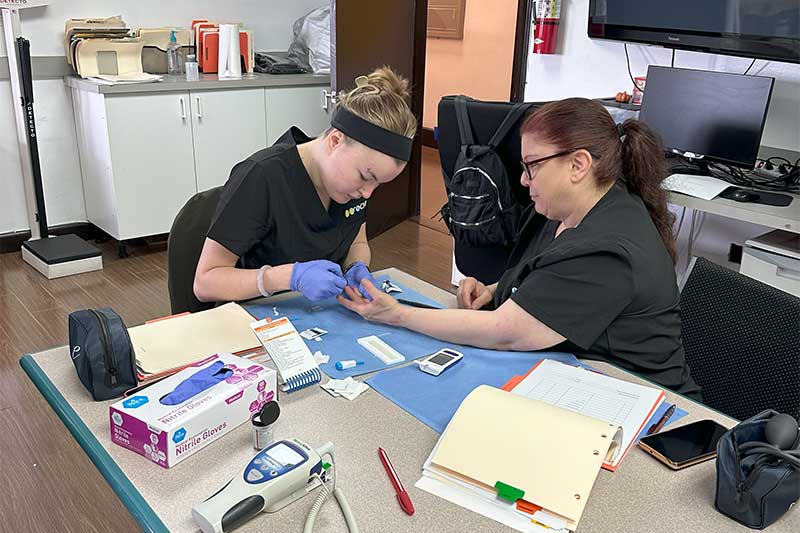Medical assisting is a growing profession with endless career opportunities. There are various healthcare settings where medical assistants can work, including hospitals, clinics, and urgent care centers. Among these settings, working in an urgent care center is a popular choice for many medical assistants. Urgent care centers offer a fast-paced and diverse environment to work in. In this blog, we’ll discuss the pros and cons of working as a medical assistant in urgent care centers.
Learn about what it takes to become a medical assistant in an urgent care setting. Discover the challenges and rewards of this exciting career at Southern California Health Institute (SOCHI).
Working In Urgent Care As A Medical Assistant: The Pros and Cons
Learn the pros and cons of working as a medical assistant in an urgent care setting. From job duties to expected salaries, get ready for your next career move with this helpful guide from SOCHI.
Pros:
1. Variety in daily tasks:
Working in urgent care means working with diverse patients with various medical needs. Every day is different in this setting. The work is always dynamic and always exciting.
2. Work-life balance:
Unlike hospital settings that require round-the-clock care, urgent care centers are typically open during regular business hours- offering a more traditional work schedule. You can be assured of getting your evenings and weekends off, which ensures a healthy work-life balance.
3. Competitive pay:
The average hourly wage of medical assistants in an urgent care is higher than the national average for the profession. This is because urgent care provides fast and convenient medical care and has to be staffed with a competent team of medical assistants to handle patients.
4. Skill development:
Urgent care centers operate on a fast pace, and medical assistants receive a wealth of experience dealing with various medical conditions. It is a great opportunity for young medical assistants to develop their skills and gain knowledge.
Cons:
1. Stressful environment:
Working in urgent care means dealing with emergencies and high-stress situations. The job requires a heightened sense of alertness and focus.
2. Limited interaction with patients:
Urgent care centers are places where patients receive medical care either in emergencies or routine care. The interaction with patients is limited, as they come and go rather quickly.
3. High stakes:
Medical assistants in urgent care are responsible for assisting in critical situations where the stakes are high and the outcomes are consequential.
4. Emotional toll:
The job requires handling a diverse and sensitive case load, which can take a toll on your emotional well-being.
How to Become a Medical Assistant?
Becoming a medical assistant can be a rewarding career option for those wanting to work in the healthcare industry. You will work alongside doctors and nurses as a medical assistant to provide patient care. To begin your journey as a medical assistant, you will need to complete a certification program. These programs typically take one to two years to complete and are offered at vocational schools, community colleges, and some universities.
You will learn about medical terminology, anatomy and physiology, medical ethics, and other important healthcare topics during your program. After completing your program, you can take a certification exam through organizations like the American Association of Medical Assistants or the National Healthcare Association to become a certified medical assistant.
Conclusion:
Working in an urgent care center as a medical assistant can provide you with a rewarding, challenging, and fulfilling career. You will be exposed to different medical situations and have the opportunity to work in a fast-paced environment.
A medical assistant in an Urgent Care Center must possess excellent communication skills, teamwork abilities, adaptability, and critical thinking abilities. These skills and extensive medical knowledge will help ensure that your experience as a medical assistant in urgent care is successful and productive.




